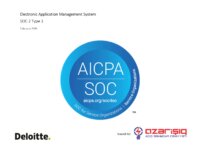Mi Taxi, My Cab, part of Mexico City’s App, was created to boost trust in the public cab network by making the service safer. It provides information about the drivers and the cabs' public concessions. Users can rate the trip and activate a panic button connected to the City’s Intelligence Agency, C5.
Negative perceptions of safety among the public lead the Government to grasp the situation faced by drivers and users, particularly women, and thus developed the initial phase of the app,…
Innovation Tag: Anticorruption and Integrity
Case Study
Nudging Mexico City drivers into feeling co-responsible for everyone’s safety: a new license…
Taking a course and a comprehensive driving test has not been a mandatory requirement to issue a driver's license in Mexico City and implementing such a system is not simple. The City is building institutional capabilities to effectively implement mandatory courses and tests to improve road safety. Meanwhile, SEMOVI has modified the issuing license form to nudge applicants into feeling co-responsible for road safety and refraining from driving if they deem themselves incapable of doing it…
Case Study
Fotocívicas: Changing Fines for Community Work and Educational Penalties to Improve Drivers’…
Fotocívicas is a behaviourally inspired traffic control system that relies on educational and civic fines aiming to transform drivers’ behaviour by reducing recidivism and licensing effect among offenders. It sets out to change the previous system, which was based on monetary fines with cameras placed where drivers were more prone to speed, not where more fatalities happened, without improving behaviours or road safety
Approaches to corruption are generally negative and ineffective- focusing on the problems and the wrong-doers rather than the solutions and the do-gooders. Integrity Icon is a global campaign run by the Accountability Lab organisation to "name and fame" honest government officials, change the narrative around graft and rebuild trust in government through lifting up role-models. It is innovative not just in the citizen and media driven campaign itself, but in the creative ways the campaign then…
“Azerishiq” OJSC has created an innovative and enhanced e-service for providing electricity of up to 150 kilowatts to the existing or under-construction buildings of entrepreneurs. As a result of these reforms, entrepreneurs will be able to apply for an electricity connection through the One Window system online by visiting https://www.e-gov.az/en/login/?return=/az/services/readwidenew/3774/ website and the entrepreneur’s business will be provided with electricity within 20 days.
Citizen-centric Municipal Governance Scorecard is an innovation for improving local good governance. The main objective is furthering local good governance through transforming good governance principles into practical, measurable processes and actions. The model consisted of 227 indicators for the seven principles along decision-making, resource allocation, service delivery and institutional capacity stages. The data collection is geared for citizen use, based on digitally available…
In one sentence, the floating Parliament Accounts Committee between Small Pacific Islands State creates a multi-national team of experts who simplifies budget processes while transparently saving resources. A cost-effective measure to share expertise, boost accountability and communicate openly about Governments’ budget processes while providing MPs with the best guidance possible.
The promotion of competition has been identified as one of the major challenges of the Public Procurement System in Colombia. Despite its importance, it was only in 2019 that a tool allowing to effectively monitor the participation of the interested parties on the bidding processes was developed and implemented by the Colombian Procurement Agency. Thanks to this tool, participants are able to diagnose flaws, and make suggestions or requests for improvements.
The Government of Tanzania has implemented a budgeting solution, developed with Isidore, for the collection, analysis and reporting of public revenue and expenses. The budget process is complicated from having diverse streams of revenue and expenses including donor funding, project outcomes, staff and capital works, which must be input by all Ministries and their personnel who are geographically dispersed. The final consolidated results are required in time for Parliament to ratify.
Not only is transparency in Brazil taken as the principle of publicity in public administration, but also as a Public Policy, led by integrated actions focused on achieving specific goals.
Brazilian Government has reaped concrete quantitative and qualitative transparency-driven results: saving of resources, reformulation of public policies and inhibition of misconduct and corruption acts.
The Transparency Portal is the core of the policy and central tool to promote results through transparency.

